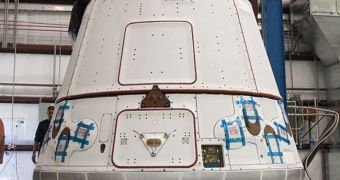At this point, all private space companies that are far down the line to creating space taxis are working under NASA contracts. But the space agency will not finance these efforts for ever, so officials in the emerging industry are now beginning to ponder about what's in store for them next.
This Saturday, May 19, Hawthorne, California-based Space Exploration Technologies Corporation (SpaceX) is scheduled to launch the first-ever, privately built spacecraft to the International Space Station (ISS). The unmanned capsule was developed under a $1.6 billion NASA contract.
But the contract only extends for 12 resupply flights to the station. Beyond that time, NASA is expected to have access to its own vehicle, the Orion Multi-Purpose Crew Vehicle (MPCV), and the Space Launch System (SLS) rocket.
The American space agency is now interested in receiving proposals for complete launch platforms that include both rockets and their spacecraft. SpaceX, Orbital Sciences Corporation and Boeing are just some of the companies working towards this end.
But there are also some corporations whose proposals were not selected by NASA for direct funding. Officials from these organizations say that they will continue to develop their respective space vehicles regardless. In the future, the space agency may call on them to deliver astronauts or cargo to the ISS.
“At SpaceX, we definitely hope to go forward in partnership with NASA, not only for financial reasons, but just also it's been a very effective partnership during our cargo efforts as far as being able to tap into the great experience base in technology and know-how that NASA has,” Garrett Reisman says.
The expert is the senior engineer for astronaut safety and mission assurance at SpaceX. Together with Boeing CCDev Deputy Program Manager, Keith Reiley and Sierra Nevada Corp.'s Chairman and Vice President, Mark Sirangelo, he has recently participated in a panel discussion on private spaceflight.
The panel was a part of the inaugural Spacecraft Technology Expo, which was held in Los Angeles, California, between May 8-10, Space reports. During the discussions, Reisman said that SpaceX would continue to develop a manned version of its Dragon capsule even without NASA funds.
If “we are not selected in this next phase, would we continue to work on human spaceflight? Absolutely. We might proceed in different directions, we might proceed at a different pace with less resources available to us, but, oh yeah, we're going to keep going,” he told attendants.
Reiley said that officials at Boeing had yet to decide whether or not they would continue to develop the CST-100 spacecraft without NASA funding. “I frankly don't know. We've thought about it, but there's not anything official that we've done,” he added.

 14 DAY TRIAL //
14 DAY TRIAL //